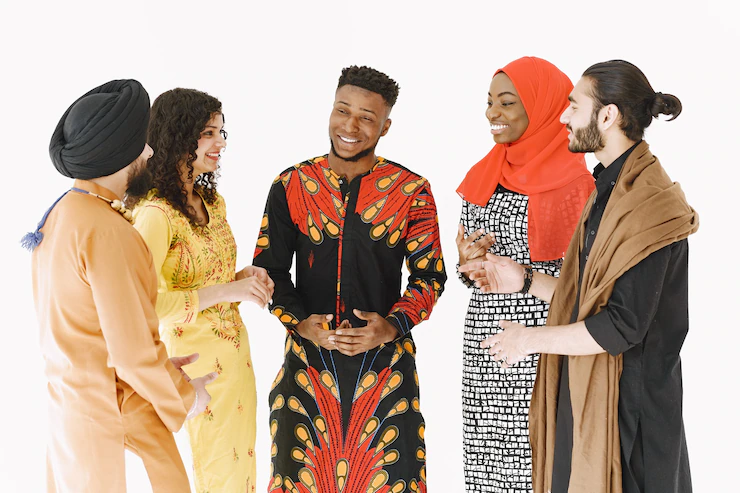Intercultural relationships offer a unique opportunity to experience the richness and beauty of diverse backgrounds, traditions, and perspectives. However, they can also present challenges that require open-mindedness, patience, and effective communication. In this article, we will explore essential tips for successfully navigating intercultural relationships, fostering understanding, respect, and a strong foundation for love and harmony.
- Embrace Cultural Curiosity
Approach your intercultural relationship with a genuine curiosity and eagerness to learn about your partner’s culture. Be open to exploring their traditions, customs, language, and values. Ask questions, actively listen, and engage in meaningful conversations. Embracing cultural curiosity fosters understanding and strengthens the connection between you and your partner. - Recognize and Respect Differences
It is important to acknowledge that you and your partner may have different cultural backgrounds and perspectives. Embrace these differences and approach them with respect and open-mindedness. Avoid making assumptions or judgments based on stereotypes. Instead, engage in open dialogue to understand each other’s viewpoints and bridge any gaps in understanding. - Communication is Key
Effective communication is vital in any relationship, but it becomes even more crucial in intercultural relationships. Be patient and understanding, especially when language barriers or cultural nuances come into play. Foster an environment of open and honest communication, where both partners feel safe expressing their thoughts, feelings, and concerns. Active listening and empathy are essential in navigating potential misunderstandings and conflicts. - Foster a Culture of Compromise
Intercultural relationships often require compromise and finding a balance between different cultural practices and beliefs. Both partners should be willing to make adjustments and find common ground that respects both cultures. By fostering a culture of compromise, you create a harmonious and inclusive environment that allows both individuals to celebrate their heritage while building a shared future together. - Build a Support Network
Surround yourself with a support network that celebrates and embraces diversity. Seek out communities or groups that bring together people from various cultural backgrounds. Connecting with others who have experience in intercultural relationships can provide valuable insights, advice, and a sense of belonging. - Learn the Language
Learning your partner’s language can be a powerful way to bridge cultural gaps and deepen your connection. Even basic language skills can show your commitment to understanding their culture and facilitate effective communication. Encourage your partner to teach you their language, and reciprocate by offering to teach them your own. This shared effort creates a stronger bond and demonstrates mutual respect. - Embrace Celebrations and Traditions
Participating in each other’s cultural celebrations and traditions is a beautiful way to honor and appreciate your partner’s heritage. Attend festivals, family gatherings, or religious ceremonies together. Engage in learning and experiencing the customs, rituals, and cuisines associated with these events. Embracing these celebrations as a couple enhances your understanding of each other’s cultures and creates shared memories. - Be Mindful of Family Dynamics
In intercultural relationships, family dynamics and expectations may differ significantly. Recognize that your partner’s family may have different values and customs than your own. Show respect for their family’s traditions and be prepared to adapt to their expectations. Openly communicate with your partner about potential challenges and discuss strategies for balancing cultural differences within the family dynamic. - Seek Professional Help if Needed
If navigating the complexities of an intercultural relationship becomes challenging, seeking professional help through couples therapy or counseling can be beneficial. A skilled therapist can provide guidance, facilitate productive communication, and offer strategies for addressing cultural differences and conflicts. - Celebrate the Beauty of Diversity
Above all, celebrate the beauty of diversity in your intercultural relationship. Appreciate the richness that comes from blending different backgrounds, perspectives, and traditions. Embrace the learning opportunities and the growth that comes with exploring your partner’s culture. By approaching your relationship with respect, understanding, and an open heart, you can create a bond that transcends cultural boundaries.
Intercultural relationships require openness, respect, effective communication, and a willingness to learn from and embrace diverse cultures. By fostering a deep understanding of each other’s backgrounds, maintaining open dialogue, and celebrating the beauty of diversity, you can create a strong and harmonious relationship that not only enriches your lives but also contributes positively to a more inclusive and interconnected world.










